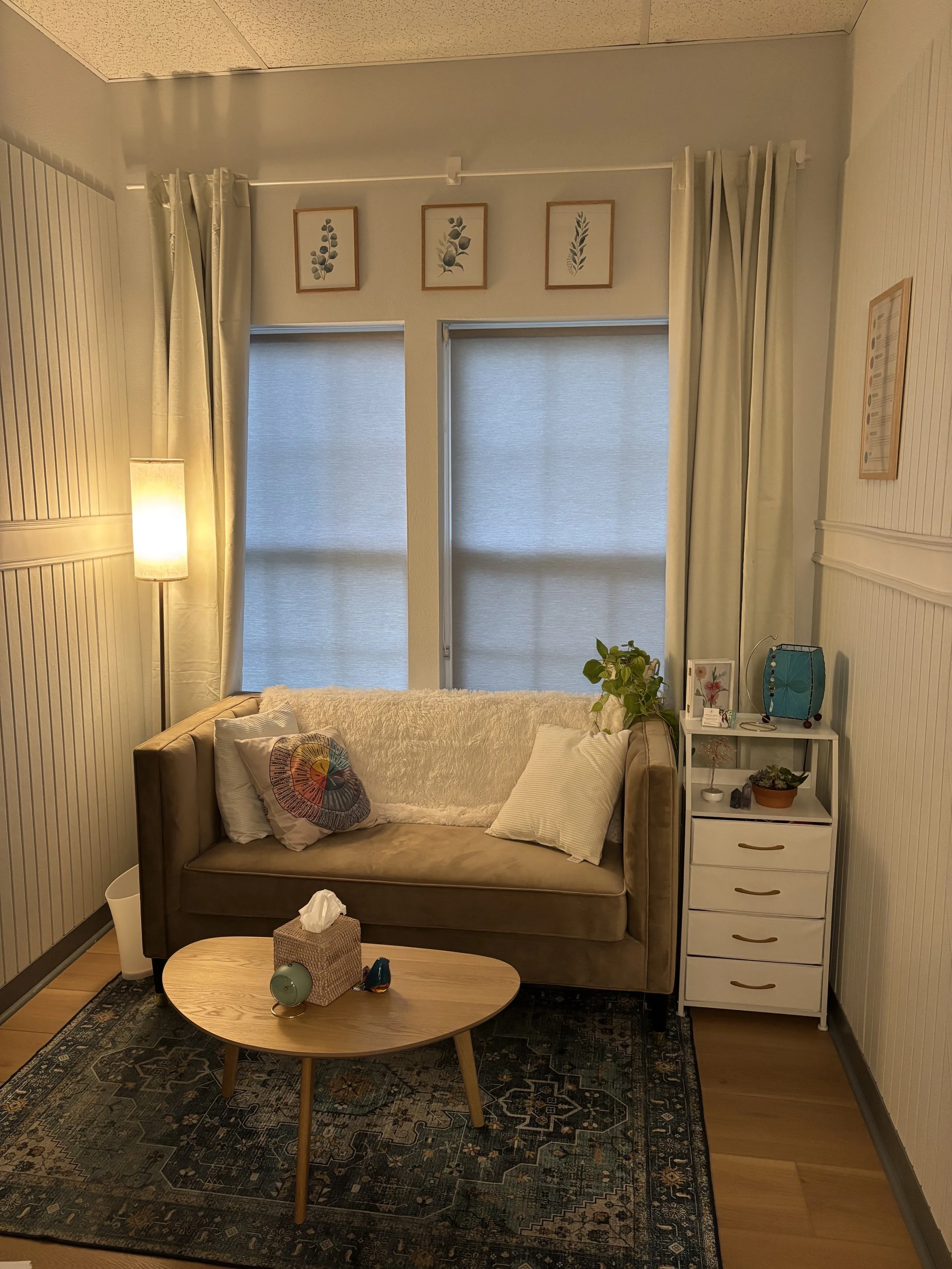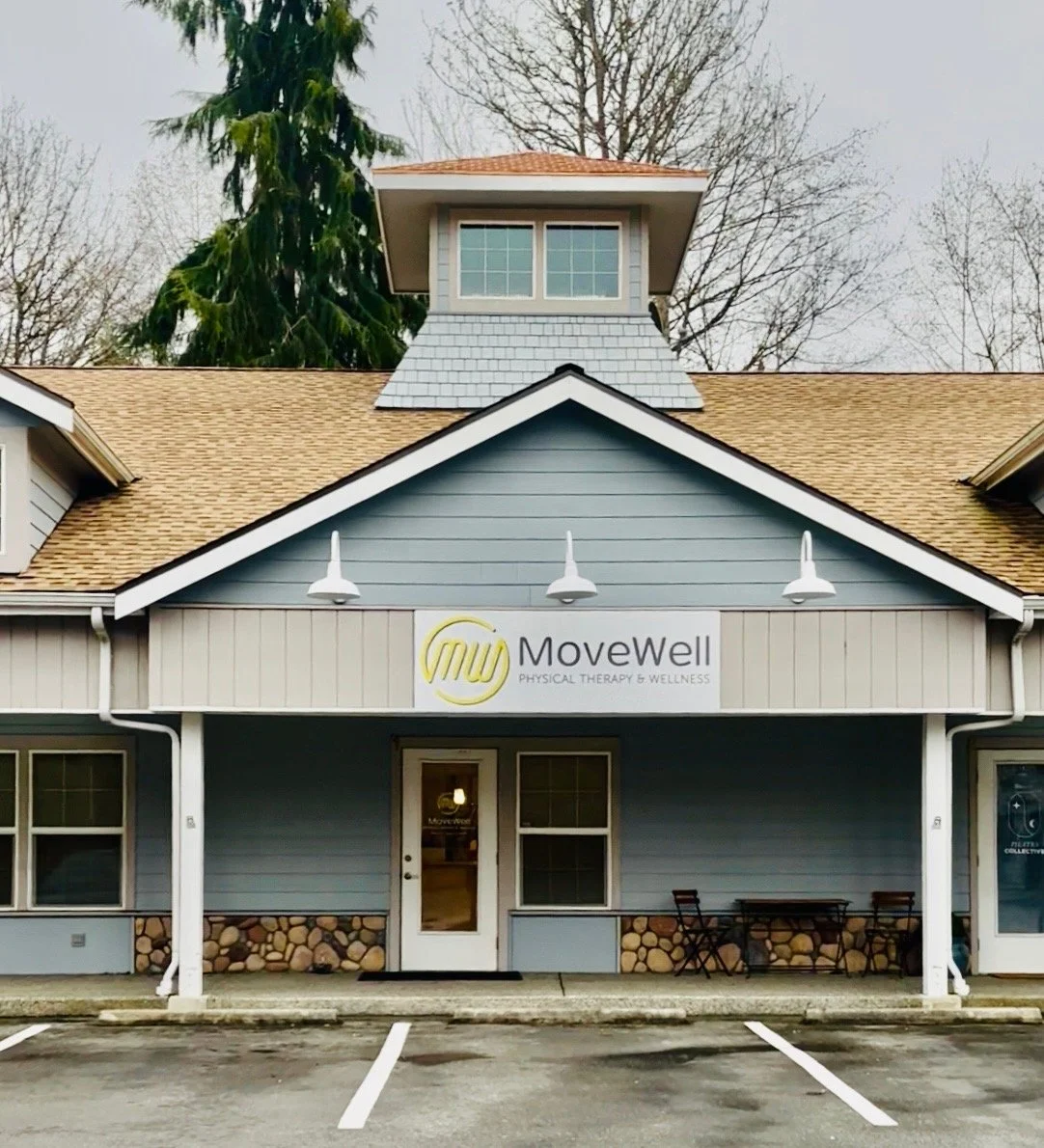Katelyn Lodell Counseling
✳︎ Embrace your Gifts ✳︎ Build Resilience ✳︎ Live Aligned ✳︎

Providing therapy to adults & teens in Washington via telehealth & in-person in Freeland
Meet katelyn lodell
licensed clinical mental health counselor (LMHCA)
Katelyn (she/her) provides counseling that values your unique strengths with holistic support to live life with balance, confidence, and authenticity.
Her goal is to help clients uncover what is holding them back, embrace their unique strengths, and move toward a fulfilling life aligned with their values and inspirations.
Services & Specializations
-

Individual Psychotherapy
I help individuals navigate and understand their thoughts, emotions, and behaviors. Through open dialogue and a collaborative relationship, psychotherapy aims to address various mental health challenges, promote personal growth, and enhance overall well-being. My goal is to empower individuals to gain insight, develop coping skills, and make positive changes in their lives.
-

Neurodivergence-affirming care
As a trainee in the Davis Autism Approach®, I offer counseling and programs that honor the strengths of autistic and ADHD individuals while providing support for challenges with emotional regulation, social anxiety, and daily life. I also work with parents and family members, offering guidance and strategies to better understand and support their loved one. My approach is strengths-based, affirming, and tailored to help every client and family thrive as their unique selves.
-

navigating disordered eating
With a background in integrative nutrition and intuitive eating, I support teens + adults in moving away from rigid patterns around food and body image. Using a somatic approach, I help clients tune into the wisdom of their bodies, develop healthier coping strategies, and create a more peaceful, aligned relationship with eating and self-care.
Schedule a consultation
More about Katelyn
Hi! I’m a Licensed Mental Health Counselor Associate (LMHCA) in Washington State, offering a holistic approach to therapy that integrates the mind, body, and life force. My work is informed by training in integrative nutrition, intuitive eating, Internal Family Systems (IFS), and somatic awareness. I’m also the co-owner of MoveWell Physical Therapy & Wellness, where I collaborate with other professionals who share a whole-person approach to healing.
I have experience supporting both teens and adults navigating disordered eating, anxiety, depression, and major life transitions. In my private practice, which I’ve owned for the past two years, I combine evidence-based counseling with whole-person wellness principles to create care that is individualized, affirming, and deeply supportive.
I’m currently completing training in the Davis Autism Approach® and am accepting clients with Autism and ADHD as part of my practicum toward becoming a Licensed Autism Approach® Facilitator.
Above all, I value the therapeutic relationship as the foundation of growth and healing. My goal is to create a space where you feel safe to be your authentic self, free from judgment, supported with compassion, and met with genuine curiosity as we explore your unique path toward well-being.

Education
2023 | MA, Clinical Mental Health Counseling | Antioch University, New England
Trainings
Davis Autism Approach® Trainee
I’m currently training in the Davis Autism Approach® and am accepting clients with Autism and ADHD as part of my practicum requirements towards becoming a Licensed Davis Autism Approach® Facilitator
certifications
Certified IIN Integrative Nutrition Health Coach
Certified Eating Disorder Recovery Coach
licensure
I’m currently an Associate Clinical Mental Health Counselor // LMHCA // License # MC61516324
I’m under the supervision of Michelle Henderson // LMHC // License # LH60736785 these can be verified here.
-
If you have out-of-network benefits, you may seek reimbursement if you wish. I do this by providing you with a “superbill”. This is a monthly receipt that shows what services you received and the amount you’ve already spent.
You may submit claims for reimbursement with your insurance company. The process for claim submission is different for each plan. Please contact your insurance to find out how you can submit superbills (as opposed to single session claims). You do this by calling the number on the back of your insurance card.
State insurances, otherwise known as Medicaid/Medicare, do not reimburse for out-of-network behavioral health services.
-
I am not paneled with any insurance companies at this time.
This means you will have to pay up front for therapy services and seek reimbursement from your insurance company if you have out-of-network benefits.
-
Here are some helpful questions to ask your insurance provider:
Do I have behavioral/mental health coverage under my plan?
How many outpatient psychotherapy sessions am I allotted in my plan?
Do I have out-of-network benefits for behavioral health on my plan?
(If yes,) Do I have a deductible?
(If yes,) What part of that deductible have I met so far (if at any)?
What is my co-pay/co-insurance for out-of-network behavioral health visits?
How do I submit “Superbills” for reimbursement?
Are there any limitations, requirements, or restrictions in accessing my plan?
Am I limited to a dollar amount per year that will be covered?
Associates:
“Do you reimburse for Associate” mental health clinicians, such as social workers/ “LSWAIC credential”?
What are my out-of-network benefits for seeing a Marriage and Family Therapy Associate under billing codes 90791, 90837, or 90847?
-
You can pay for your therapy with Health Savings Accounts (HSA) or Flexible Spending Accounts (FSA). However, you technically are not supposed to use these cards for missed appointments.
You can generally use your Health Savings Account (HSA) to pay for therapy and counseling services, but there are important stipulations to keep in mind.
Here's a breakdown of what you need to know:
Eligibility
Medically Necessary: The therapy or counseling must be for a diagnosed medical condition, including mental health conditions like anxiety, depression, or PTSD. General counseling for stress reduction or personal development typically won't qualify.
Qualified Healthcare Provider: The therapist or counselor needs to be a licensed healthcare professional.
Documentation: You may need a Letter of Medical Necessity (LMN) from your healthcare provider, especially if the therapy is considered non-traditional, or if your HSA administrator requires it. This letter should detail the medical condition and the necessity of the therapy. Keep detailed records of your expenses for potential audits.
HSA Eligibility Requirements: To open and contribute to an HSA, you generally need to be enrolled in a high-deductible health plan (HDHP) and not have other non-HSA-compatible health insurance.
-
If you have a health plan through a job, you can put your Flexible Spending Account (FSA) card on file to pay for health care costs, including deductibles, copayments, & coinsurance. This can lower your taxable income. These cards cannot be used for missed appointment or late cancellation fees.
How Flexible Spending Accounts work:
A Flexible Spending Account (FSA, also called a “flexible spending arrangement”) is a special account you put money into that you use to pay for certain out-of-pocket health care costs. You don’t pay taxes on this money. This means you’ll save an amount equal to the taxes you would have paid on the money you set aside.
Employers may make contributions to your FSA, but they aren’t required to.
With an FSA, you submit a claim to the FSA (through your employer) with proof of the medical expense and a statement that it hasn't been covered by your plan. Then, you’ll get reimbursed for your costs. Ask your employer about how to use your specific FSA.
To learn more about FSAs, contact your employer for details about your company’s benefits, including how to sign up.
-
New federal laws help protect people from surprise medical bills with a Good Faith Estimate. This is called the “No Surprises Act”.
The No Surprises act which is a part of the consolidated Appropriations Act of 2021, is designed to protect clients from receiving unexpected medical bills. You have the right to receive a “Good Faith Estimate” explaining how much your medical care will cost. Under the law, health care providers need to give patients who don’t have insurance or who are not using insurance an estimate of the bill for medical items and services.
You have the right to receive a Good Faith Estimate for the total expected cost of any non-emergency items or services. This includes related costs like medical tests, prescription drugs, equipment, and hospital fees.
Make sure your health care provider gives you a Good Faith Estimate in writing at least 1 business day before your medical service or item. You can also ask your health care provider, and any other provider you choose, for a Good Faith Estimate before you schedule an item or service.
If you receive a bill that is at least $400 more than your Good Faith Estimate, you can dispute the bill.
The "Good Faith Estimate” is meant to give an idea of what you'll be charged, prior to beginning services. To estimate your yearly cost for therapy, take the rate you’re paying and multiply it by the number of weeks per year you expect to receive therapy. This will give you a picture of how much you may pay for therapy in a year with us.For more information about the No Surprises Act, please click here
Paying for Therapy
You may use check, debit or credit card to pay for therapy. More details:

My Rates
50 minute session
$145
Sliding Scale
Check for availability
My location
Located at MoveWell Physical Therapy & Wellness
1832 SCOTT Rd. Freeland, WA 98249
When you arrive, let the front desk staff know that you are here for an appointment with me. Then you may wait in the lobby and I will call you back when I’m ready for our session. If you prefer more privacy, there is a back entrance you may use. Just let me know prior to your appointment and I can direct you how to use it.

Schedule a free 15-minute phone consultation

Book your free consultation
Fill out this form & I will get back to you















